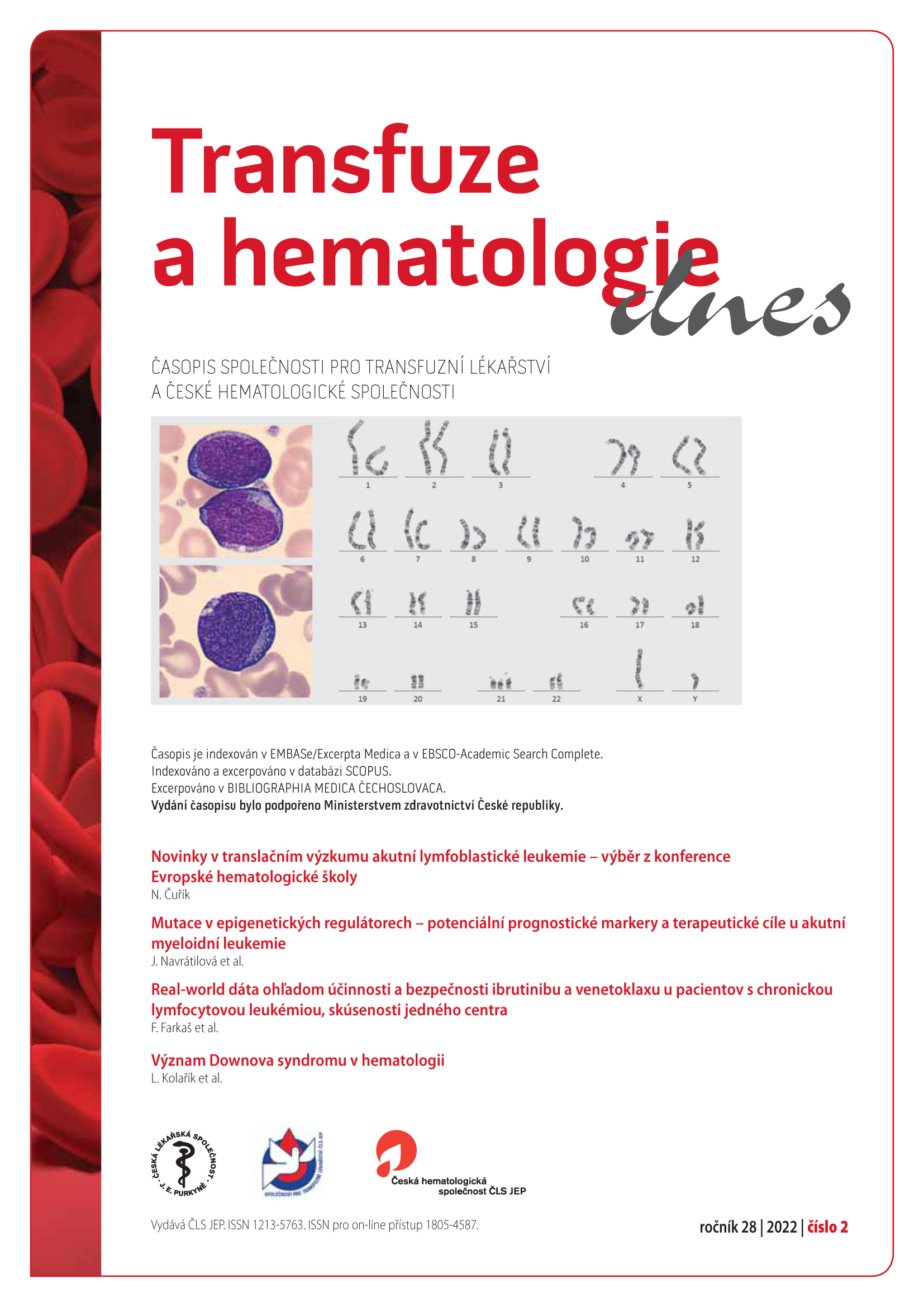Importance of Down syndrome in hematology
Keywords:
Down syndrome, peripheral blood, blastic elements, leukemia, GATA1 mutation, transient myeloproliferative disease, chromosome 21Abstract
Down syndrome (DS) is one of the most common congenital syndromes in the human population. The cause of DS is complete or partial trisomy of chromosome 21. The disease is accompanied by a typical phenotypic manifestation and a higher risk of health complications, including hemato-oncological diseases. Hematological complications accompaying DS can be dividend into non-specific and specific. Specific haematological complications include transient myeloproliferative disease (TMD), myelodysplastic syndrome and acute leukemia. TMD affects up to 10 % newborns with DS. In most cases spontaneous remission of the disease occurs, but in 20-30 % of cases develops acute leukemia. Acute leukemia associated with DS is most often of myeloid origin, rarely of lymphoid origin. Recent studies point to an insufficient definition of TMD according to the WHO classification. A criterion based solely on the presence of an indeterninate amount of myeloid blast elements in the peripheral blood smear in neonates with DS may lead to misdiagnosis.


